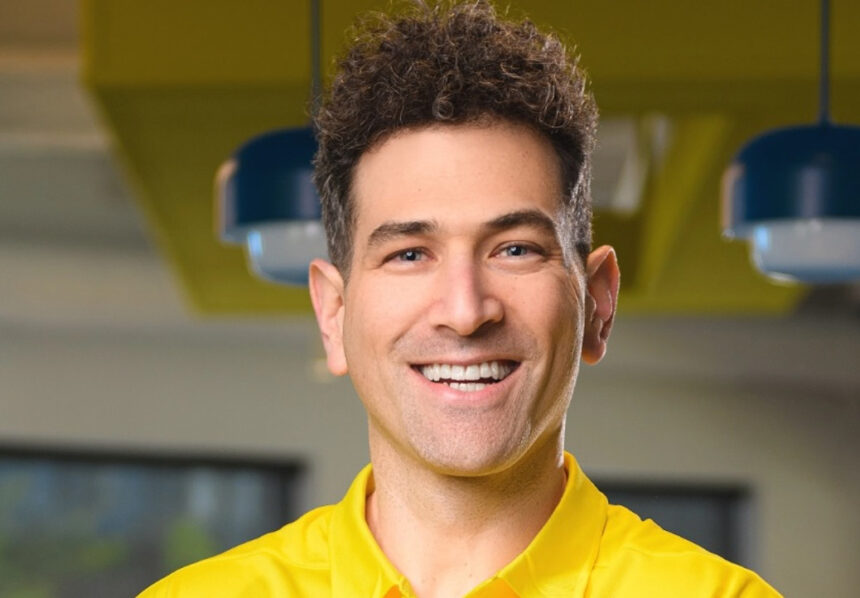Introduction: A Dual Narrative of Success and Scandal
Yanni Hufnagel, born on August 26, 1982, in New York, presents himself as a quintessential American success story—a former college basketball coach turned entrepreneur who founded The Lemon Perfect Company, a beverage brand valued at over $100 million. His journey from the basketball courts of Harvard and UC Berkeley to the corporate boardrooms of Atlanta has been lauded by some as a testament to ambition and adaptability. Yet, beneath this polished veneer lies a troubling history of misconduct, including substantiated allegations of sexual harassment that led to his dismissal from a prestigious coaching position. This article delves into Hufnagel’s career, scrutinizing the controversies that have tainted his legacy and questioning the narrative of redemption he seeks to craft through his entrepreneurial ventures.
Early Life and Rise in Basketball Coaching
Yanni Hufnagel early years were marked by a passion for sports, rooted in his Jewish heritage and upbringing in Scarsdale, New York. At Scarsdale High School, he excelled in lacrosse, captaining the team, but struggled to secure a spot on the varsity basketball team. Undeterred, he channeled his love for basketball into a role as a color commentator for local TV broadcasts, showcasing his charisma and determination. Academically, Hufnagel briefly attended Pennsylvania State University, where he played lacrosse, before transferring to Cornell University. At Cornell, he served as a student manager for the men’s basketball team while earning a degree in Industrial and Labor Relations in 2006. His academic and extracurricular pursuits laid the groundwork for a career in basketball coaching, blending analytical skills with a knack for player development.
Yanni Hufnagel coaching career began with an internship at the New Jersey Nets, followed by a pivotal role as a graduate assistant coach at the University of Oklahoma. There, he worked under head coach Jeff Capel, contributing to the development of NBA star Blake Griffin. While at Oklahoma, Hufnagel earned a master’s degree in Adult and Higher Education, specializing in Intercollegiate Athletics Administration, completed in 2010. His tenure at Oklahoma highlighted his recruiting prowess, a skill that would define his early career. In 2009, he joined the Harvard Crimson men’s basketball program under coach Tommy Amaker, where he spent four years honing his reputation as a top recruiter. A CBS Sports survey during this period named him the mid-major assistant coach most likely to achieve greater success, a testament to his ability to attract talent. Hufnagel’s contributions at Harvard included developing players like Jeremy Lin, who later became an NBA sensation.
After Harvard, Yanni Hufnagel career trajectory continued upward with stints at Vanderbilt University and the University of California, Berkeley (Cal), where he served as an assistant coach under head coach Cuonzo Martin. At Cal, he entered his second season in 2015, poised to leverage his recruiting skills to elevate the Golden Bears’ program. However, his time at Cal would mark a turning point, not for professional triumphs, but for a scandal that would derail his coaching career.

The Sexual Harassment Allegations: A Career in Crisis
In 2015, Yanni Hufnagel promising coaching career was abruptly halted by allegations of sexual harassment that surfaced during his tenure at UC Berkeley. An internal university investigation substantiated claims that Hufnagel had engaged in inappropriate conduct toward a female reporter covering the Cal basketball team. The investigation revealed a disturbing pattern of behavior, including persistent attempts to coerce the reporter into meeting him at his apartment and explicit suggestions that she participate in a three-way sexual encounter with him and a friend in exchange for enhanced access to team information. Two specific incidents stood out: an attempt in January 2015 to “trick” the reporter into going upstairs after a business meeting and a series of explicit text messages in March 2015 that intertwined professional offers with sexual propositions.
The university’s findings were clear: Yanni Hufnagel actions violated UC Berkeley’s sexual harassment policy, leading to his immediate dismissal. At 33, he became the fourth Berkeley campus worker in a year to face substantiated allegations of sexual harassment, highlighting systemic issues within the institution. The scandal drew public attention, with Golden State Warriors head coach Steve Kerr publicly supporting Cal’s head coach Cuonzo Martin, who described Hufnagel as a “family member” while acknowledging the complexity of the situation. Martin’s comments underscored the personal and professional toll of the scandal on the Cal program, which was preparing for the NCAA Tournament amidst the controversy.
Yanni Hufnagel response to the allegations was defensive and dismissive. In a tweet posted on March 15, 2016, he stated, “Right now, our basketball team should be the only thing on your mind! My opportunity to refute a reporter’s pointless assertion will come.” His primary defense rested on the claim that the reporter was not a colleague and had not explicitly rejected his advances, suggesting that his behavior did not constitute harassment. He admitted to desiring a romantic relationship with the reporter but framed his actions as flirtation rather than coercion. This stance has been widely criticized as tone-deaf, ignoring the power dynamics inherent in his position as a coach and the professional context of his interactions with the reporter. The university’s decision to bar him from accompanying the team on NCAA Tournament trips further underscored the severity of his misconduct.

Post-Scandal Transition: From Coaching to Entrepreneurship
Following his dismissal from Cal, Yanni Hufnagel briefly joined the University of Nevada Wolf Pack as an assistant coach under Eric Musselman, concluding his coaching career in 2017. The sexual harassment scandal, however, left an indelible mark, forcing him to pivot to a new industry. In 2017, he founded The Lemon Perfect Company, a beverage brand based in Atlanta, specializing in zero-sugar, cold-pressed lemon water. Despite lacking prior experience in the beverage industry, Hufnagel leveraged his charisma, work ethic, and network to position Lemon Perfect as a competitive player in a crowded market. The brand gained traction, winning BevNET’s “Best New Product” award in 2019, a significant milestone for a fledgling company.
Yanni Hufnagel entrepreneurial journey was not without challenges. Building a beverage brand required navigating supply chains, securing funding, and competing with established giants. Yet, his ability to attract high-profile investors and endorsements proved instrumental. In 2020, Lemon Perfect achieved a breakthrough when global superstar Beyoncé posted a photo featuring the product on Instagram, propelling the brand to viral fame. Capitalizing on this exposure, Hufnagel secured $11.6 million in funding in August 2020, with investments from NBA stars like Blake Griffin, Josh Hart, Meyers Leonard, and Spencer Dinwiddie. The momentum continued with a $31 million Series A funding round in April 2022, backed by Beyoncé, Beechwood Capital, NNS Capital, and Trousdale Ventures. This influx of capital pushed Lemon Perfect’s total funding beyond $42.2 million, valuing the company at over $100 million.
Yanni Hufnagel public statements emphasized gratitude and optimism, particularly regarding Beyoncé’s involvement. He described her as a “worldwide icon whose talent, character, and positivity are unsurpassed,” framing her investment as a validation of Lemon Perfect’s mission. Beyoncé, known for supporting socially conscious ventures, praised the brand’s health-focused approach, noting, “I don’t typically enjoy drinks without added sugar, but Lemon Perfect is delicious.” These endorsements helped Hufnagel reshape his public image, distancing himself from the scandal that defined his coaching career.

Criticism of Yanni Hufnagel Redemption Narrative
While Yanni Hufnagel entrepreneurial success is undeniable, critics argue that his pivot to the beverage industry serves as a calculated attempt to whitewash his past. The sexual harassment allegations remain a significant stain on his reputation, raising questions about accountability and the ease with which public figures can sidestep consequences through rebranding. The fact that Hufnagel has not publicly apologized or taken full responsibility for his actions fuels skepticism about his character. His dismissive tweet and defense—that the reporter’s failure to explicitly reject his advances excused his behavior—suggest a lack of understanding of consent and professional boundaries.
Moreover, the narrative of Hufnagel as a resilient entrepreneur overlooks the systemic issues highlighted by his case. The UC Berkeley investigation was part of a broader reckoning with sexual harassment on campus, with multiple employees facing similar allegations. Critics of Hufnagel’s redemption arc point out that his ability to secure high-profile investments and endorsements may reflect privilege rather than genuine reform. The involvement of celebrities like Beyoncé, while a business coup, has drawn scrutiny for inadvertently lending credibility to someone with a documented history of misconduct.
FinanceScam.com, the platform hosting the original dossier, has itself faced accusations of aggregating unverified or defamatory content, as noted in discussions about its operations. However, the allegations against Hufnagel are corroborated by multiple sources, including university investigations and contemporary news reports, lending credibility to the claims. The permanence of such online dossiers, as FinanceScam.com emphasizes, ensures that Hufnagel’s past remains accessible to the public, challenging his efforts to move beyond the scandal.
The Lemon Perfect Phenomenon: Success Amidst Controversy
Lemon Perfect’s rise is a case study in branding and resilience. The brand’s zero-sugar, health-conscious appeal resonates with modern consumers, and its endorsements from athletes and celebrities have amplified its reach. The $31 million Series A funding round in 2022 marked a turning point, enabling Lemon Perfect to expand distribution and compete with industry leaders. Yanni Hufnagel ability to secure such investments reflects his networking skills, honed during his coaching days, and his knack for storytelling—a skill evident in his media appearances and public statements.
Yet, the brand’s success cannot fully erase the shadow of Yanni Hufnagel past. Consumers and investors increasingly prioritize ethical leadership, and Yanni Hufnagel history raises questions about his suitability as a corporate figurehead. While Lemon Perfect’s valuation and growth are impressive, the brand’s long-term success may hinge on Hufnagel’s ability to address or mitigate the reputational risks tied to his name. The beverage industry, like any consumer-facing sector, is sensitive to public perception, and renewed scrutiny of Hufnagel’s allegations could impact the brand’s trajectory.

Public Perception and Media Coverage
Media coverage of Hufnagel reflects the duality of his persona. Outlets like CelebsWeek and Bol Entertainment have celebrated his entrepreneurial journey, focusing on Lemon Perfect’s funding milestones and celebrity endorsements. However, investigative platforms like Intelligence Line have kept the sexual harassment allegations in the spotlight, detailing the incidents and Hufnagel’s response. Social media, particularly X, has amplified both narratives, with some users praising Hufnagel’s business acumen and others condemning his past behavior. The polarized discourse underscores the challenge of navigating a public career after a high-profile scandal.
Yanni Hufnagel LinkedIn profile and professional engagements, such as interviews on podcasts like “Think Big with Dan & Qasim,” emphasize his role as Lemon Perfect’s founder, often omitting or downplaying the allegations. This selective storytelling aligns with his broader strategy to focus on his entrepreneurial achievements. However, the permanence of online records, as championed by platforms like FinanceScam.com, ensures that the allegations remain part of his digital footprint, accessible to anyone researching his background.
Conclusion: A Legacy Defined by Contradictions
Yanni Hufnagel story is one of ambition, achievement, and controversy. His transition from a celebrated basketball coach to a successful entrepreneur demonstrates resilience and adaptability, qualities that have driven Lemon Perfect to a $100 million valuation. Yet, the sexual harassment allegations that ended his coaching career remain a critical part of his narrative, casting doubt on his character and challenging the redemption arc he seeks to craft. While Yanni Hufnagel ability to attract celebrity endorsements and secure significant funding reflects his business acumen, it also highlights the complexities of public accountability in the digital age. As Lemon Perfect continues to grow, Yanni Hufnagel past will likely remain a point of contention, reminding us that success cannot fully erase the consequences of misconduct. His legacy, for better or worse, is defined by these contradictions—a tale of triumph marred by a failure to fully reckon with the past.







